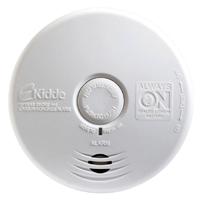Be Prepared for the Silent Killer: New Law for Nebraska

Do you know what you can’t feel, taste, hear or smell but can still be deadly in your home? The answer is carbon monoxide (CO). CO can put our kids, pregnant moms and senior citizens at particular risk.
There’s an easy way to protect your family from the risk of carbon monoxide poisoning, also known as the “silent killer.” It’s a carbon monoxide detector. You can purchase one to install in your home or apartment for a very reasonable cost (under $50), a CO detector can even be combined with a smoke alarm.
Beginning January 1, 2017, a new law (LB 34) went into effect in Nebraska, requiring single family and multi-family homes to be equipped with a CO detector—read all about it. This is important because the National Institutes of Health ranks our state as one of the highest CO poisoning rates in the country. Because Nebraska gets so cold in the winter, we use fuel fired heating appliances, generators and fireplaces, and they produce CO.
According to the law, landlords are responsible for ensuring there are CO detectors on hand for tenants. When a home is sold, transferred, or when owners make major renovations, CO detectors are required.
Want to know more? We have prepared a frequently asked questions document for you.
Here are some quick tips on CO safety:
- Make sure your home has carbon monoxide alarms. If you don’t have one, please go out and get one.
- Make sure you have a carbon monoxide alarm on every level of your home, especially near sleeping areas, and keep them at least 15 feet away from fuel-burning appliances.
- You won’t know that you have a carbon monoxide leak without a working alarm. So test alarms regularly and replace them every five to seven years depending on the manufacturer’s label.
- Carbon monoxide alarms are not substitutes for smoke alarms, and vice versa. Combination smoke and carbon monoxide alarms are available.
- Be careful about allowing a car to run in a garage and, when outside, be mindful that CO can get into the car if the tailpipe is clogged with snow or under water.




